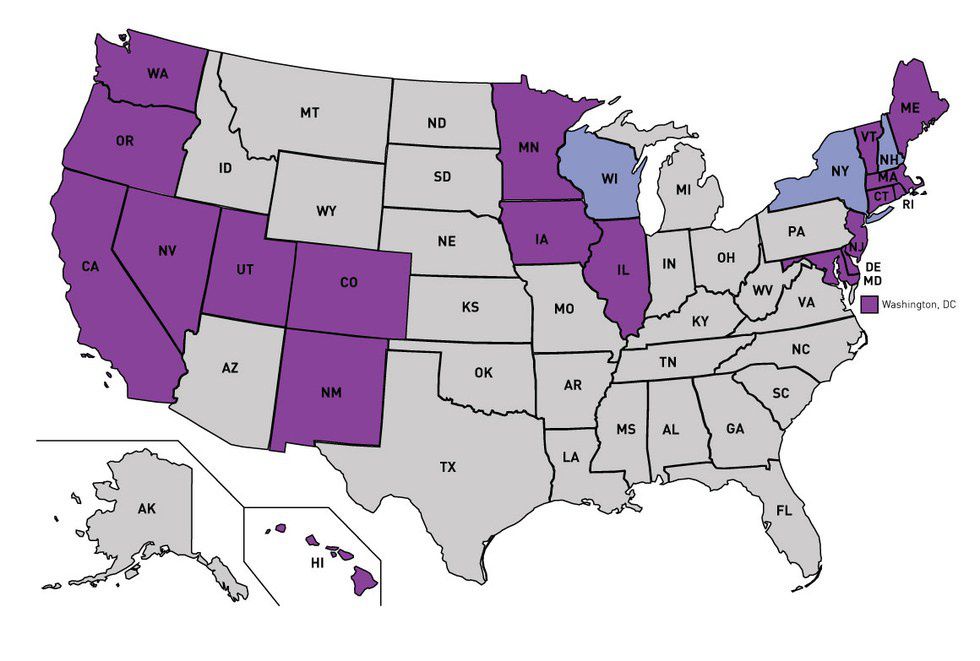On June 26th, 2015, in a landmark 5-4 decision, the Supreme Court of the United States ruled in Obergefell v. Hodges that state bans on same-sex marriage were unconstitutional, effectively legalizing same-sex marriage throughout the entire country. Same-sex marriage was first legalized in the United States in Massachusetts in 2004, and in more than decade since then it had become legal in dozens of other states as well. People who had anticipated years more of the state-by-state legalization process suddenly had reason to celebrate after a decision arrived, in the words of President Obama, "like a thunderbolt". However, while the legal marriage of hundreds of thousands of couples in the year since the decision is something to be celebrated, there is still a long ways to go in the fight towards equality for the LGBTQ+ community.
Equal rights for the LGBTQ+ community means a lot more than just same-sex marriage. Only 22 states have employment and housing protections for queer people based on sexuality, and of those, only 19 also include protections based on gender identity. That means that in 28 states, a person can be denied employment or housing simply for being a member of the LGBTQ+ community. Furthermore, being targeted for your sexuality is a hate crime in only 30 states, and of those, only 16 protect gender identity as well. This means that if you're the victim of a crime in let's say, my home state of Indiana, and you're targeted specifically because of your sexuality or gender identity, you still did not experience a hate crime.
* Employment and housing discrimination is illegal based on gender identity and sexuality in dark purple states
*Employment and housing discrimination is illegal based on sexuality excluding gender identity in light purple states
Despite the legalization of same-sex marriage, this past year has not been free of anti-LGBTQ+ rhetoric. The most prominent example of this was North Carolina's HB2, also called the "Transgender Bathroom Bill", which forced people to use the bathroom of the sex indicated on their birth certificate when in government buildings and stripped away the rights of local municipalities to enact laws protecting LGBTQ+ people. Finally, the year ended with the biggest mass shooting in American history at Pulse nightclub in Orlando this past weekend, where an overwhelming majority of the victims were members of both the LGBTQ+ and Latinx community. Afterwards, many of those same politicians who had fought so hard to deny queer people the same rights as everyone else offered their condolences and prayers, urging people not to "politicize" the issue with race and sexuality.
Yes, America has come a long way in terms of rights for LGBTQ+ people, and the victory of marriage equality should not be understated. Yet it seems that the validity of queer lives is a topic that is still up for debate. Maybe it's because I'm an optimist that I like to think that the reason there is still a ways to go is because many of the straight, cisgender allies who fought for marriage equality simply don't know about a lot of the systemic inequality LGBTQ+ people face. But when it comes to the equal treatment of humans, ignorance is not bliss, and the fight must continue until it is won.






















